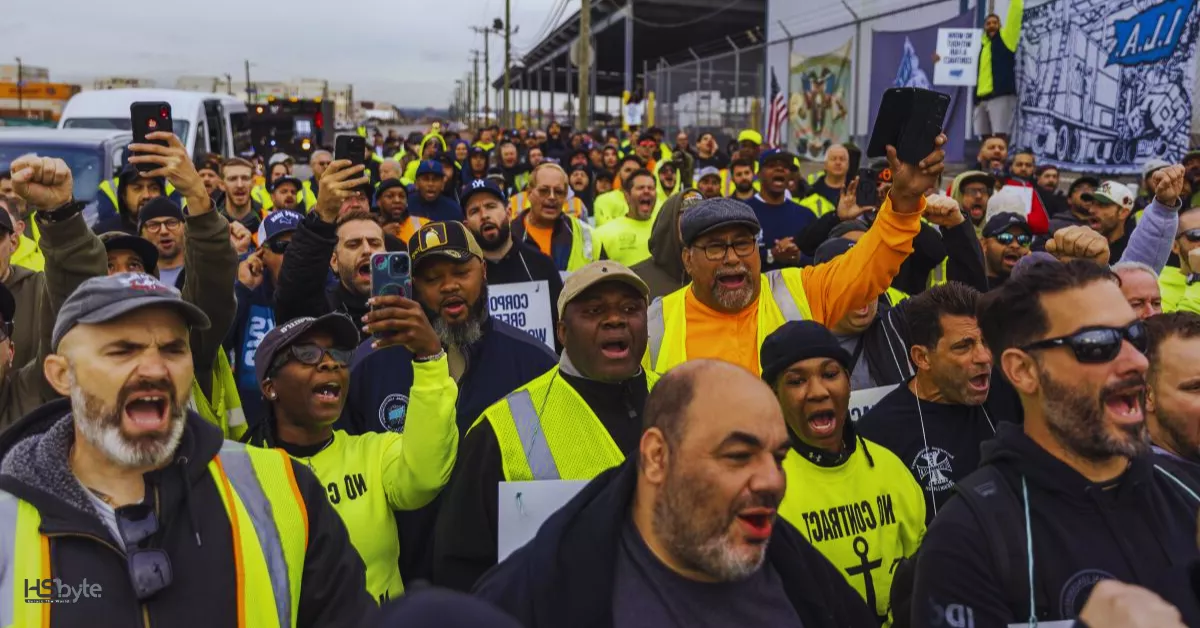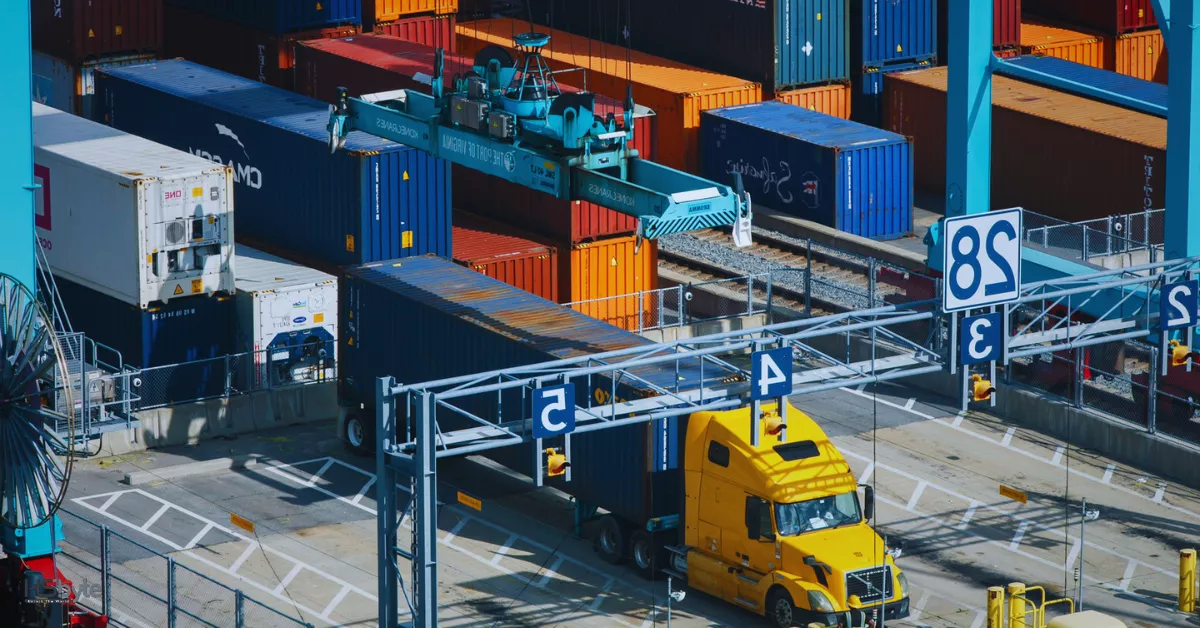
- Category: Business

- Share
The head of the International Longshoremen’s Association (ILA), Harold Daggett, vowed to keep US ports on the east and gulf coasts closed until their pay demands are met. Speaking on a New Jersey picket line, Daggett emphasized that the dockworkers are not backing down, with their first strike in decades halting container traffic across 14 major ports.
The union is fighting for significant wage increases and protections against automation, which they believe threaten the future of their jobs. “We’re going to win this fight, or these ports will never open again,” said Daggett. Dockworkers, who earn a base hourly wage of $20-$39 under the 2018 contract, are now demanding an additional $5 hourly raise for each year of the contract.
The strike has already caused widespread disruptions to the US economy, with thousands of containers left stranded. Business owners, like Danny Reynolds, who relies on east coast ports for 75% of his store’s inventory, are bracing for potential shortages. Reynolds shared concerns about how the strike may delay important shipments, including special-order bridal gowns.
The United States Maritime Alliance (USMX), representing shipping firms and port associations, has proposed pay raises of nearly 50%, improved retirement benefits, and better healthcare in an effort to resume negotiations. However, the ILA has rejected these offers, leading to the deadlock that threatens further economic fallout.
With over 100,000 containers in limbo at ports and ships anchored outside waiting for updates, the shipping industry is already feeling the strain. Freight companies warn that if the strike continues, it could lead to massive supply chain delays, impacting both businesses and consumers.

President Joe Biden has so far resisted calls to intervene and force the ports to reopen temporarily. He stated, “Now is not the time for ocean carriers to refuse a fair deal for these essential workers who risked their lives during the pandemic.” Biden also warned companies against unfair price hikes that could worsen the situation for consumers.
The strike’s impacts are already rippling through global trade, with freight forwarders expecting significant disruptions if the stoppage is prolonged. Dockworkers remain resolute in their demands, calling for better pay, increased job security, and assurances that automation won’t jeopardize their future.
As the standoff continues, businesses and consumers alike are left to wonder just how long the ports will stay closed and how deeply it will affect the already fragile supply chain.
You May Also Like


Top 10 Inflatable Boats for Weekend Warriors in 2025

Inflatable Boats 101: Everything You Need to Know Before You Buy

Predictable Revenue: How ValueBuilt Is Redefining Predictable Revenue for Modern Businesses

D’Angelo: Neo-Soul Legend Who Redefined Music

Israeli Hostage Couple Reunited After 738 Days
Latest Update

Zelensky Biden Meeting Ignites Republican Outrage Amid Aid Talks

Wuthering Heights Film Casting: Controversy Sparks Debate

Will the US Presidential Election Shape the Future of Crypto?

War with Russia: Zelensky Sees Hope for Peace

Unpacking the ‘Dark Arts’ in Manchester City vs Arsenal Showdown

UNIFIL Post Breached: Israeli Tanks Escalate Tensions

Trump Demands Hamas Disarm Amid Brutal Gaza Crackdown

